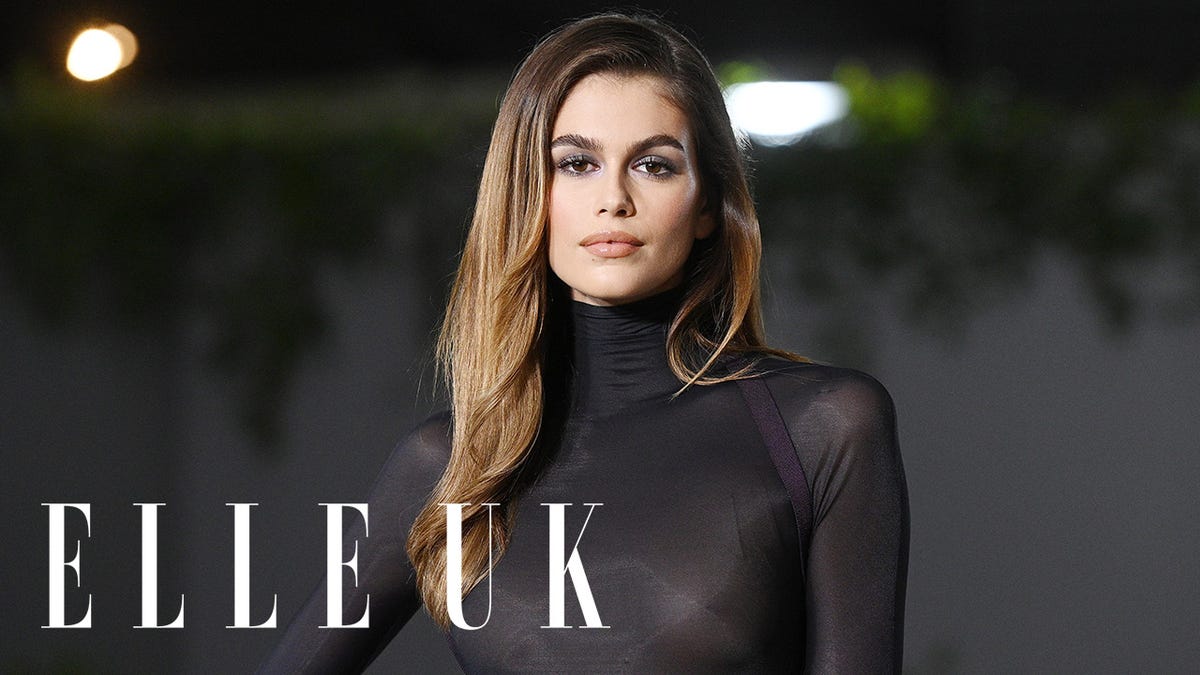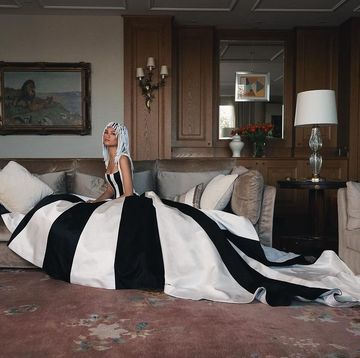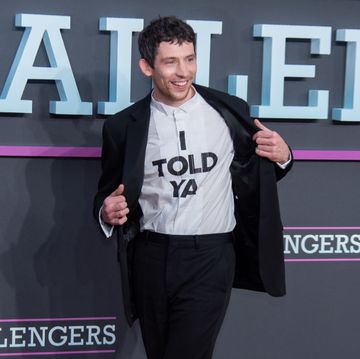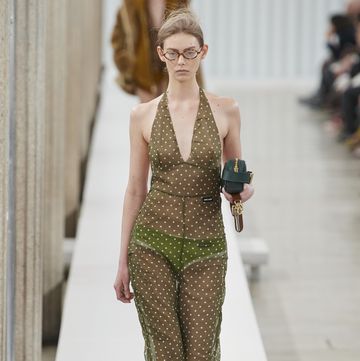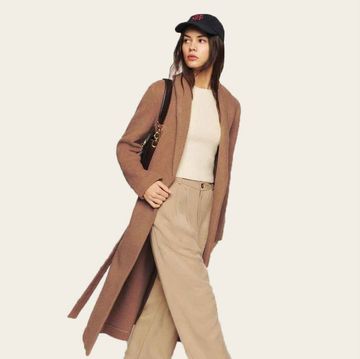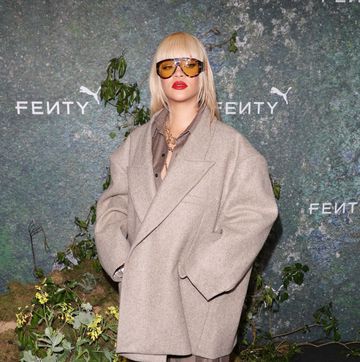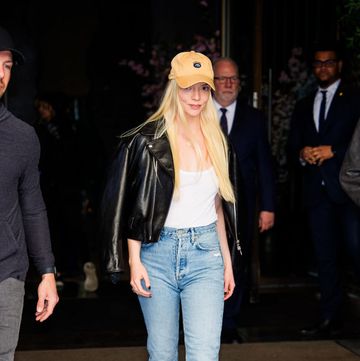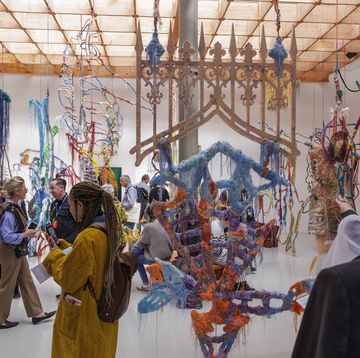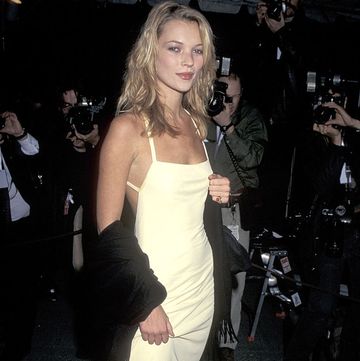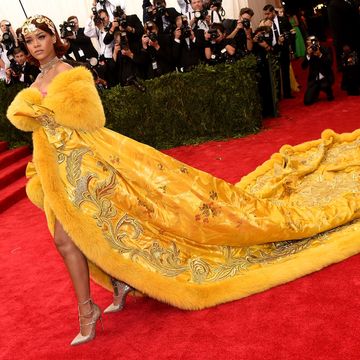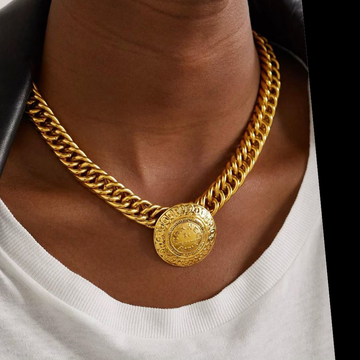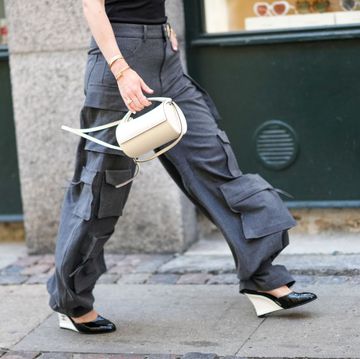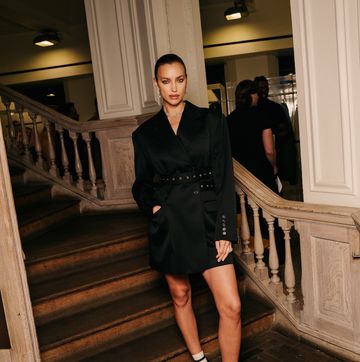If ever a show or indeed clothes could sum up sheer happiness, then this was it. Perhaps it was the feeling that his models evoked, as if they had just come out of a party having had the time of their lives. Or perhaps they hadnt even got to the party yet, having spent so much time getting ready in their amazing party frocks, piling on the costume jewellery, deciding whether or not to rebel against those high crystal-coated heels and plumb for a rebellious flat lace-up instead.
It was a visual feast, from the dramatically simple run of black dresses so utterly perfect in their fit as to demand attention whether you are asking for it or not to the silhouettes that ranged from slim and precise to voluminous and complex, to the prints and embroideries featuring butterflies and flowers, to the bright pops of colour, to the serious tailoring, to the belted prom dresses, to the millefeuille ruffles, to the chubby fur jackets, to the rigorous masculinity and the unbridled femininity, to the slippery satins, to the final bride in pearl pleated silk.
Not a bride, said Alber Elbaz after his show, No, more of an angel. The designer said hed wanted to take time over this collection, get back to the spirit of what it is to be a Parisian couture house, a laboratory of ideas, away from the concept of a global brand. He wanted the craftsmanship to shine and it did. He wanted it to feel intimate and ageless, emotional and precious; he wanted us to think and feel, if only for the duration of the show, about how clothes should make us feel: Happy, being one of the words he chose to emblazon in gold around the neck of one model. And Love.
Perhaps this was some kind of subliminal hypnotic messaging on the part of Elbaz. But really, who cares how he did it or why. Clothes that make you feel happy and fall in love are as rare as the designer who makes them. Its what fashion should be all about.
